Mr.Dong: Recalling Countess Alexandra’s Speech at AIKC
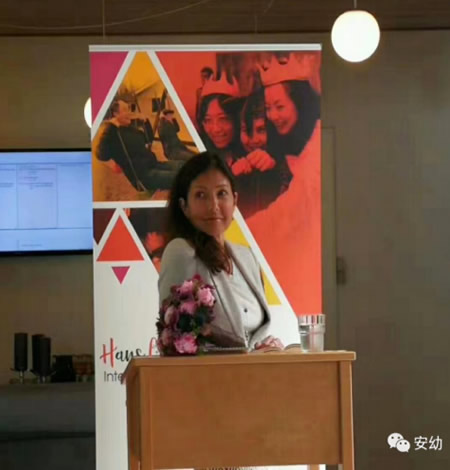
On the afternoon of May 22, 2018, former Danish princess, Countess Alexandra (née Alexandra Christina Manley), accepted an invitation from H.C. Andersen International Kindergarten College and drove to Nordfyns Folk Højskole. There, she delivered a speech to students of the AIKC and international learners from Nordfyns Folk Højskole:
"I didn’t expect such a large turnout today. I’m truly delighted. Let me share my cross-cultural journey between China and Denmark," she began. "Most of you probably know parts of my story. I come from a multicultural family—my father was of Chinese-British heritage, and my mother is Austrian. Though raised in Hong Kong’s diverse environment, my mother preserved her traditions, like celebrating Christmas authentically. In Hong Kong’s warm climate, real Christmas trees shed needles by evening, so many opt for artificial ones. I grew up speaking English in Hong Kong, German in Austria, and Cantonese. Language is vital for integration into any society.
Danes prioritize family bonds and communication. Though my mother, two sisters, and I now live continents apart, technology keeps us connected. Today, I’ll focus on how I adapted from Hong Kong to Danish life.
In the harsh winter of 1995, I arrived in Denmark—a shock for someone raised in subtropical Hong Kong. I first met my ex-husband Joachim during his internship at a Danish firm in Hong Kong. It was love at first sight. Hong Kong and Denmark share little beyond being maritime cultures. Danes adore sea sports—sailing, surfing, even winter swimming, which I once tried.
When I moved to Denmark in September 1995, my first mission was mastering Danish in six weeks for our November wedding. Language is the key to cultural integration. I studied intensely—2-3 sessions weekly, each lasting 2-3 hours. It was grueling, but I succeeded. At our wedding, I delivered a speech in fluent Danish. Everyone thought I trembled from nerves, but truthfully, I was freezing!
That snowy winter wedding was magical. We rode a carriage through Copenhagen’s streets. Later, I moved from bustling Hong Kong to an ancient castle near Denmark’s German border, though we often stayed in Copenhagen. When a journalist asked, 'Where’s your home?' I replied, 'On the highway'—constantly shuttling between the capital and the castle."
After arriving in Denmark, what struck me as most unbelievable was that seawater could freeze. Back in Hong Kong, gazing from my window at Victoria Harbour's eternally azure waters, I'd never imagined such a scene. Standing atop a castle in Jutland, the fierce western winds nearly swept me away. My mother-in-law, Queen Margrethe II, remarked, "What a pity you've encountered Denmark's coldest winter in history." Yet the following winter proved even harsher. I understood her kindness—she wanted me to settle here without being frightened away by the cold.
I noticed Danes love discussing weather, yet they never complain about it. Instead, they muse about clothing choices. Even in winter, children here remain undeterred by harsh conditions, engrossed in outdoor games. By my second Danish winter, I'd acclimated. Childhood trips to Europe from Hong Kong first showed me Europeans' weather-talk tendencies. Coming from a place with muted seasons like Hong Kong or Singapore, I now appreciate Europe's dramatic seasonal shifts. These vivid changes unveil nature's varied gifts—the jubilation of spotting spring's first green bud on barren branches, the coziness of returning from frigid outings to candlelit fireplaces and warm coffee.
Here, winter darkness descends by 3:30 PM, while summer nights stay luminous. These light patterns now feel natural. As spokesperson for a Danish tropical rainforest park, I deeply resonate with the manager's philosophy: 90% of success stems from passion and dedication, mere 10% from innate talent. Observing my children's wholehearted play in kindergarten—contrasted with my Hong Kong nephew's early academic drills—I see how such play nurtured their creative excellence in international projects. Denmark's "learn through play" approach from kindergarten through primary school truly preserves creativity.
This creative spirit permeated Hans Christian Andersen's life. Though unmarried and childless, he crafted timeless fairy tales. Born to a washerwoman and cobbler, young Andersen absorbed stories from his father before his passing at 11. Despite poverty, his mother and grandmother enriched his imagination through tales, puppet-making, and paper-cutting. Later travels sparked inspiration, forging his legendary legacy. Now global readers cherish his stories, and the Hans Christian AIKC propagates his educational vision—a marvelous development!
Before Denmark, I only knew Carlsberg beer. Discovering this flat nation (highest peak: 147m) with pristine tap water starkly contrasts crowded Hong Kong. Co-authoring a business book with an American professor revealed Denmark's top-five global social metrics, particularly its exceptional interpersonal trust—fostering trade prosperity over conflict with neighbors.
[Question from Chen Ying, AIKC trainee]:
As an exceptionally confident and independent woman, what's most important?
[Alexandra's response]:
Always remain authentically yourself!
When asked her favorite fairy tale, she chose "The Ugly Duckling"—a story teaching independence, embracing differences, rejecting superficial judgments, and allowing natural growth. Through perseverance, miracles unfold.
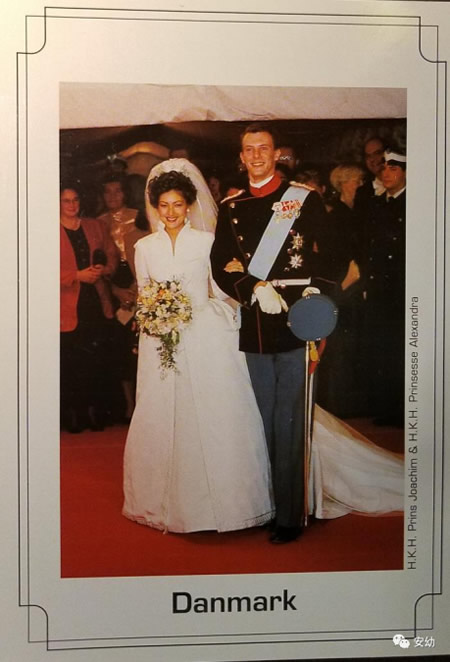
Post-Event Highlights of Countess Alexandra's Visit to AIKC:
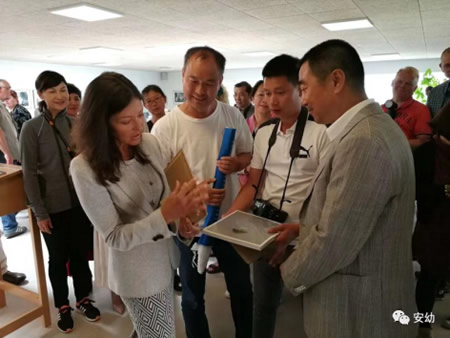
Mr. Lei Yongsheng, Chairman of Lao Niu Foundation, presented a commemorative gift to Countess Alexandra
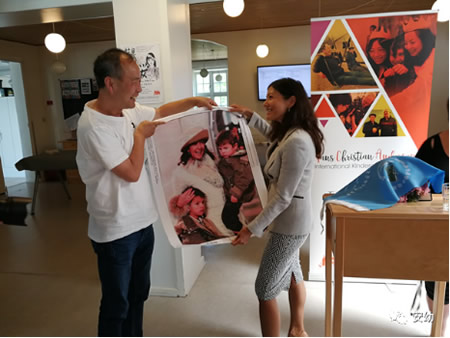
Mr. Dong Ruixiang, founder of AIKC, presented a gift to Countess Alexandra
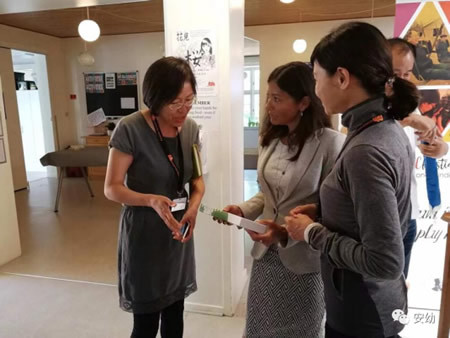
Countess Alexandra conversed with AIKC students Li Pan and Chen Ying
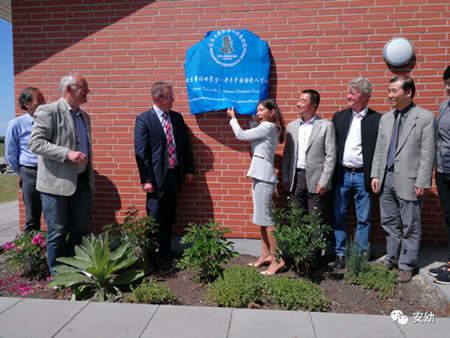
Countess Alexandra and distinguished guests unveiled the AIKC logo
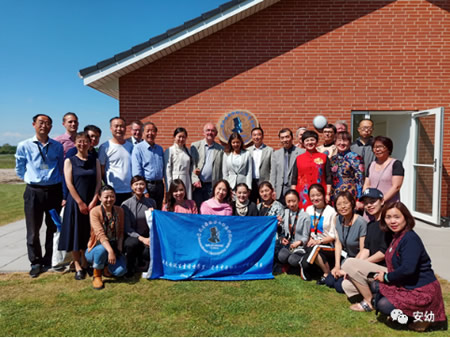
Group photo of Countess Alexandra with third cohort of AIKC students
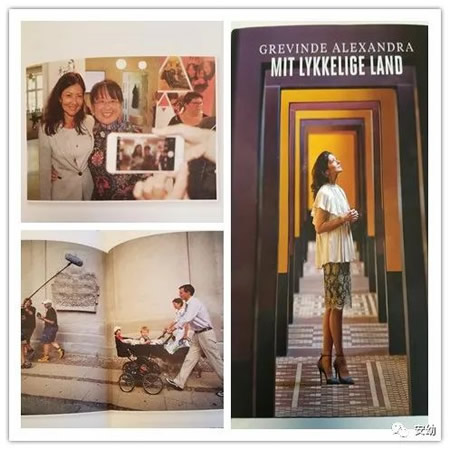
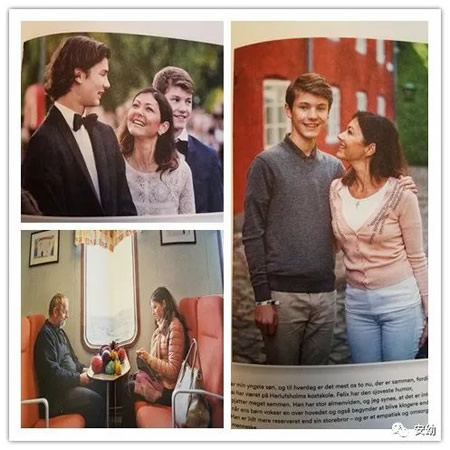
In Countess Alexandra's book "My Happy Land", she documents her life experiences in Denmark, including scenes from her classes at Andersen College and a group photo with Wang Yanfang, a teacher from the third cohort of Andersen students. The following images are excerpted from this publication.



